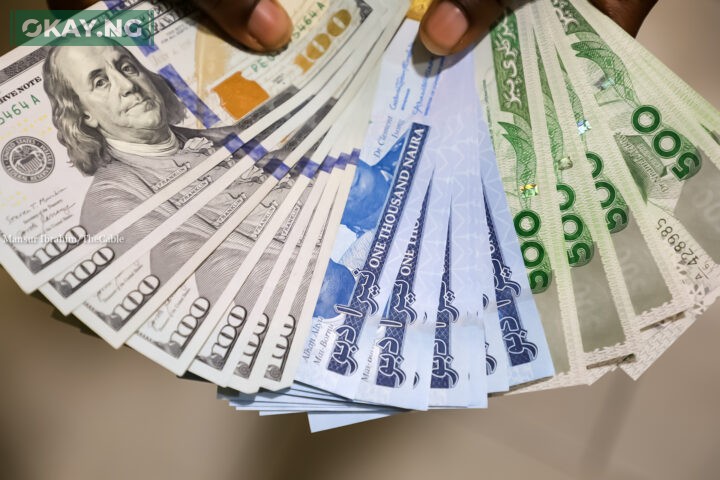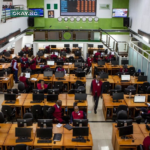The Nigerian naira has experienced a sharp decline, reaching approximately N1,600 to the US dollar, a development the Central Bank of Nigeria (CBN) attributes to significant global macroeconomic shifts. In a statement released by Dr. Omolara Omotunde Duke, Director of the CBN’s Financial Markets Department, the apex bank pointed to recent international economic events as the primary drivers of this volatility.
“The CBN has noted recent movements in the foreign exchange market between April 3 and 4, 2025, reflecting broader global macroeconomic shifts currently affecting several Emerging Market and Developing Economies,” the statement read.
Specifically, the CBN highlighted the United States’ recent announcement of new import tariffs on goods from multiple economies. This policy decision has triggered a ripple effect across global markets, leading to significant adjustments. Furthermore, the Nigerian economy, heavily reliant on crude oil exports, has been impacted by a more than 12% drop in oil prices, now hovering around $65.50 per barrel. This decline poses a considerable challenge for oil-exporting nations like Nigeria.
In response to the naira’s instability, the CBN has taken decisive action to stabilize the foreign exchange market. “To stabilise the naira and in line with its commitment to ensuring adequate liquidity and supporting orderly market functioning, the CBN said it facilitated market activity last Friday, April 4, 2025, with the provision of $197.71 million through sales to Authorized Dealers.” This intervention aims to inject much-needed liquidity into the market and mitigate further fluctuations.
The CBN remains committed to maintaining a stable, transparent, and efficient foreign exchange market. “This measured step aligns with the Bank’s broader objective of fostering a stable, transparent, and efficient foreign exchange market,” the statement emphasized. The bank also assured that it will continue to closely monitor both global and domestic market conditions, adapting its strategies as needed to ensure the resilience of Nigeria’s foreign exchange framework.
As someone who’s observed these market fluctuations over time, I understand the anxiety this can cause. It’s not just numbers on a screen; it affects everyday Nigerians, from the cost of imported goods to the stability of local businesses. The CBN’s intervention is a crucial step, but sustained stability will require a comprehensive approach to address both internal and external economic pressures.
The CBN has also issued a strong reminder to all authorized dealers to strictly adhere to the principles outlined in the Nigeria FX Market Code, emphasizing the importance of upholding the highest standards in their dealings with clients and market counterparties. This call for ethical conduct aims to ensure transparency and fairness in the foreign exchange market.
The situation underscores the interconnectedness of the global economy and the vulnerability of emerging markets to international policy changes. As we move forward, it will be crucial for Nigeria to diversify its economy and strengthen its resilience to external shocks.













